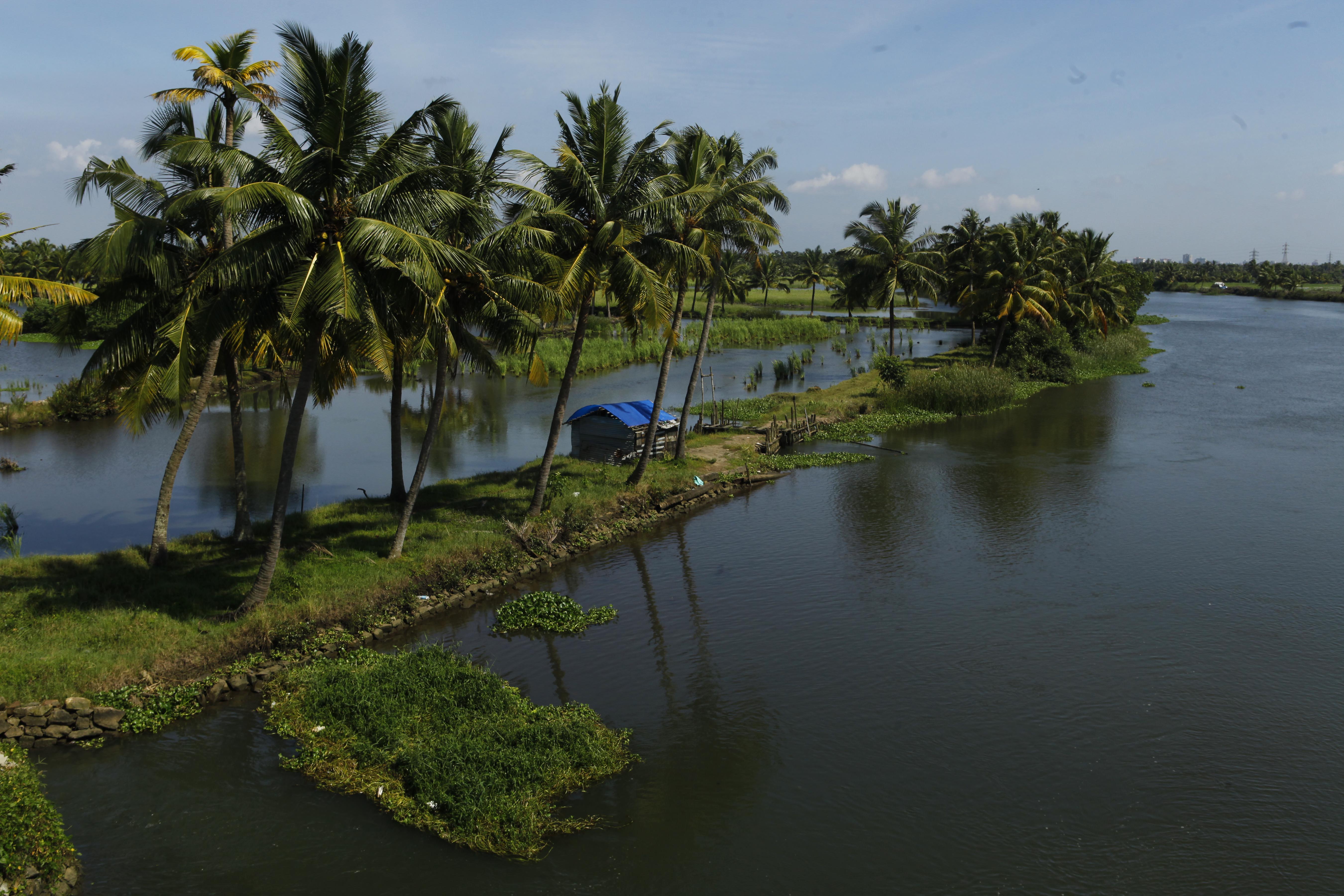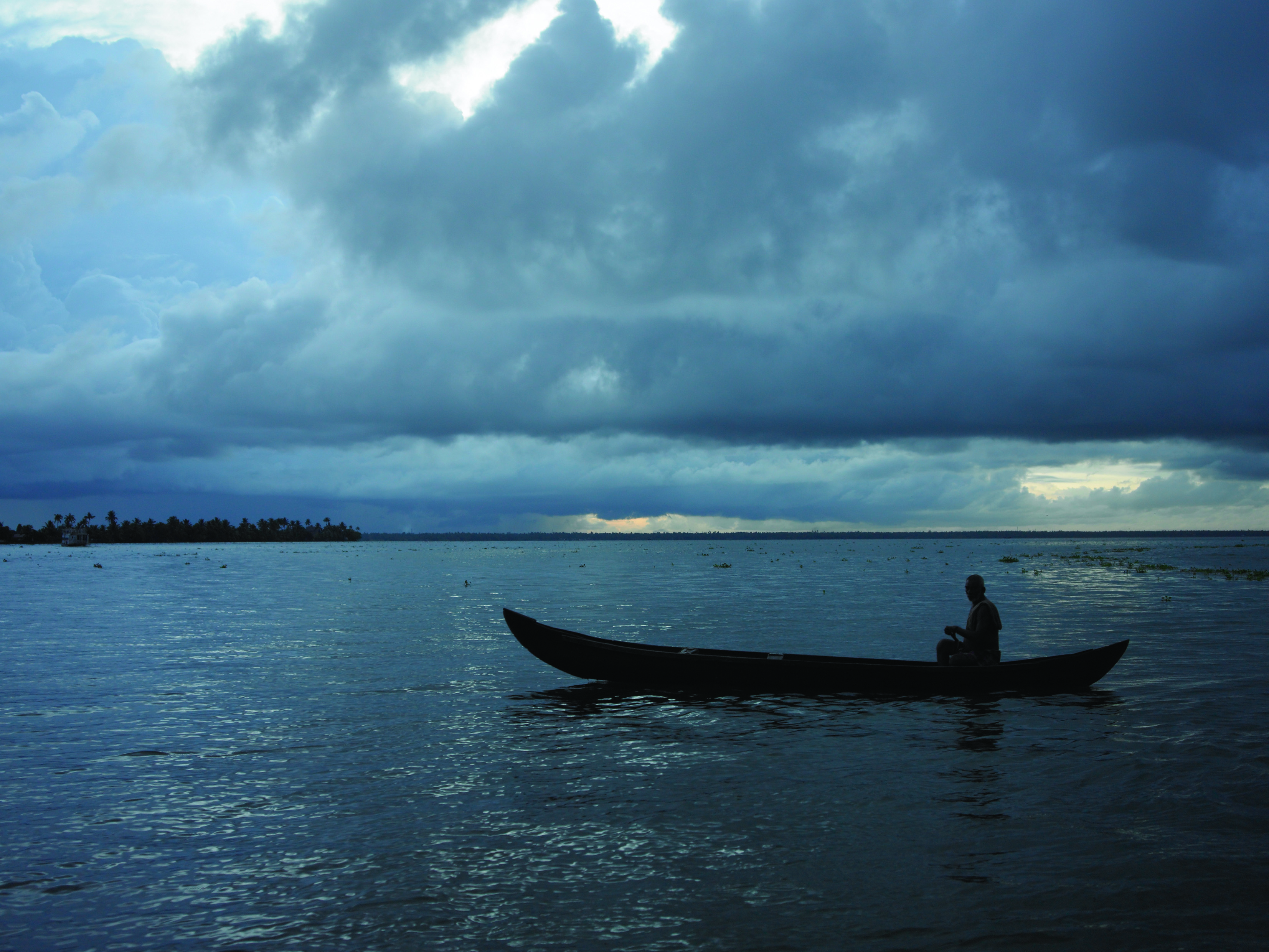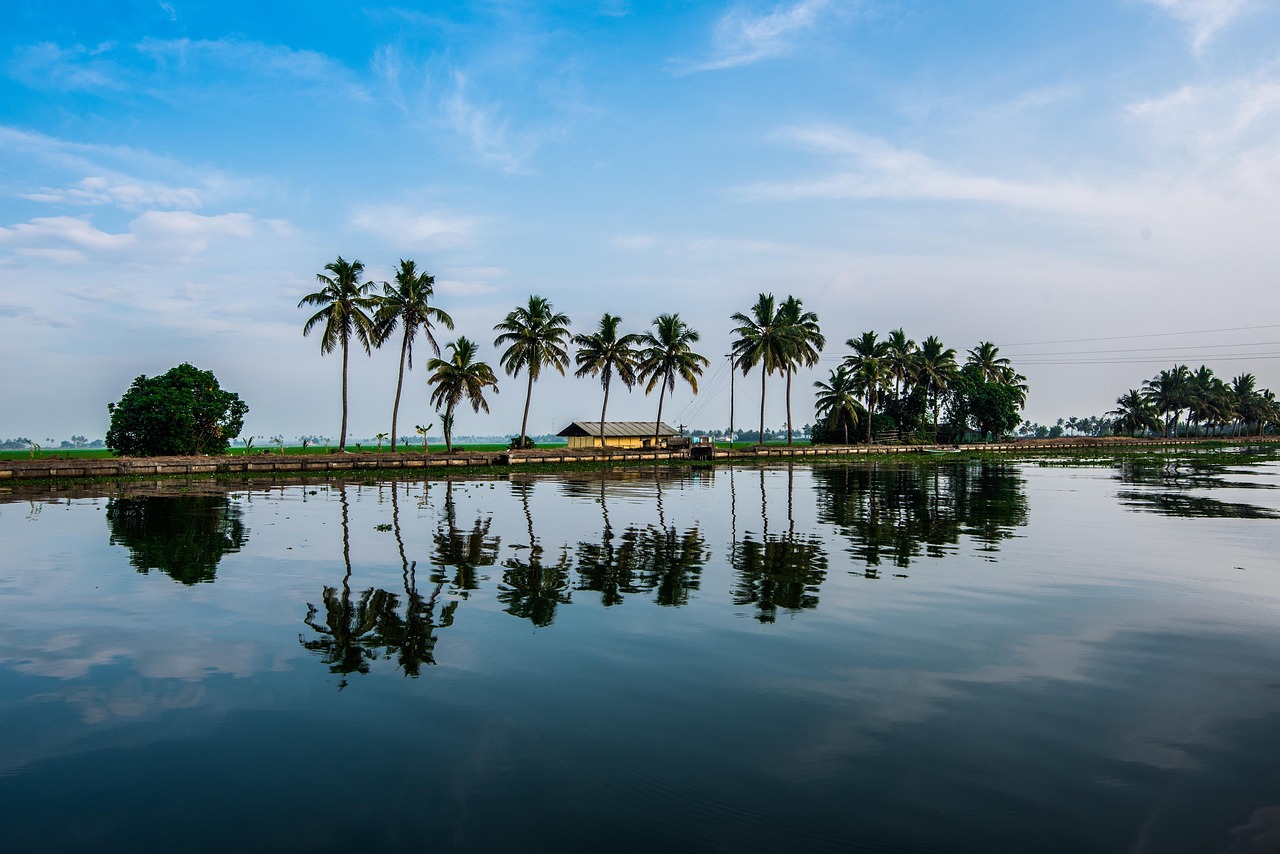Kerala Back Waters

Discovering the Soul of Kerala: The Enchanting Backwaters
Nestled between the Arabian Sea and the lush Western Ghats, the backwaters of Kerala form a unique network of brackish lagoons, lakes, canals, and rivers. Stretching over 900 kilometers, this intricate waterway system is one of Kerala’s most iconic geographical features and a cornerstone of its tourism appeal. From houseboat cruises to vibrant village life, the backwaters embody a slow, immersive experience of Kerala’s natural and cultural richness. For travelers seeking tranquility, authenticity, and a brush with local traditions, Kerala’s backwaters offer a serene escape unlike any other.
The Geography and Ecosystem of Kerala’s Backwaters
The backwaters are formed by the action of waves and shore currents creating low barrier islands across the mouths of Kerala’s many rivers. The largest and most famous of these is Vembanad Lake, which stretches across several districts including Alappuzha, Kottayam, and Ernakulam. Others, like Ashtamudi Lake in Kollam and Punnamada Lake in Alappuzha, are equally significant both ecologically and culturally.
These water bodies are teeming with life. The backwater ecosystem supports a variety of flora and fauna, including water birds, fish, otters, and even endangered species of turtles. The intertwining of freshwater from rivers with the salty tides from the sea creates a unique environment ideal for mangrove forests and aquatic biodiversity.
Backwaters as Cultural Lifelines
More than a natural marvel, the backwaters are deeply entwined with the daily lives of Kerala's people. Traditional villages dot the waterways, connected more often by canals than by roads. Here, daily commutes, trade, and even school journeys are carried out by boat. The region's folklore, festivals, and rituals often reflect this strong connection to water.
One of the most striking examples is the Vallam Kali or Snake Boat Race, a thrilling annual spectacle held during the monsoon season. Thousands gather along the banks to witness these long, narrow boats—some over 100 feet—rowed in rhythm by teams of oarsmen while traditional boat songs, or Vanchipattu, echo through the air.
Houseboat Cruises: A Floating Paradise
The houseboat, locally known as Kettuvallam, has become the centerpiece of backwater tourism. Once used to transport rice and spices, these boats are now converted into luxurious floating villas complete with bedrooms, open lounges, kitchens, and modern bathrooms. A cruise offers tourists the chance to witness picturesque paddy fields, coconut groves, traditional homes, and temple festivals from the tranquil comfort of the water.
Popular embarkation points include Alappuzha (Alleppey), often dubbed the “Venice of the East,” and Kumarakom, known for its serene bird sanctuary and eco-friendly resorts. Tourists can choose from short daytime cruises to overnight or multi-day stays with freshly cooked Kerala cuisine onboard.
Eco-Tourism and Sustainability in the Backwaters
With rising tourist interest, Kerala has increasingly focused on sustainable tourism in the backwaters. Responsible travel initiatives are promoted by the state tourism department and private operators, including: use of solar-powered boats, waste management systems, and community-based tourism models .
Visitors are encouraged to support local artisans, stay in homestays managed by local families, and avoid plastic use. This eco-conscious approach not only preserves the delicate ecosystem but also ensures that the benefits of tourism reach the grassroots level.
Top Backwater Destinations in Kerala
Kerala’s backwaters offer a unique tourism experience. The most famous is Alleppey (Alappuzha) – often called the “Venice of the East” – with a vast network of canals fringed by coconut groves and paddy fields. Nearby lies Kuttanad, Kerala’s “rice bowl,” where sunken paddy fields and palm-fringed lagoons create a surreal landscape.

Alleppey & Kuttanad: The backwaters here form a maze of waterways ideal for houseboat cruises. Drifting past lush green rice paddies and village scenes, a day on an Alleppey houseboat is quintessential Kerala backwater tourism.
Kumarakom: Situated on Vembanad Lake, this serene spot is quieter and celebrated for its bird sanctuary. Early-morning boat rides often include sightings of herons, egrets, and migratory ducks against a backdrop of emerald paddy fields.
Kollam (Ashtamudi Lake): Ashtamudi is one of Kerala’s largest lakes, often dubbed the gateway to the backwaters. Its eight-armed estuary and calm, reflective waters host scenic houseboat cruises and nearby Munroe Island’s traditional villages.

Kasaragod (Valiyaparamba): In northern Kerala, the Valiyaparamba backwaters form the third-largest backwater stretch in the state. This offbeat gem is dotted with tiny islands and mangroves, home to around 90 bird species. Solitude-seekers love its tranquil lagoons and footbridges linking sleepy islands.
Munroe Island (Kollam): A cluster of eight islets at the confluence of Ashtamudi Lake and the Kallada River. This quiet island is known for its coir-making villages and canoe tours. Guided canoe trips here wind through coconut groves and village life, stopping at traditional homes and coir workshops.
Best Time to Visit the Kerala Backwaters
The ideal season for Kerala backwater tourism is the dry winter months. From October through February, the weather is pleasantly cool (around 18–29°C), skies are mostly clear, and water levels are stable. These months allow calm, palm-fringed cruises without interruption. In fact, October–February is often cited as the best time to experience tranquil houseboat stays and sunset views over the waterways.
Kerala’s tropical summer (March–May) brings heat and humidity, but fewer crowds and lower prices. If visiting then, opt for an air-conditioned houseboat on a morning or evening cruise to beat the heat. By contrast, the monsoon season (June–September) transforms the backwaters with heavy rains. While heavy rain can disrupt long cruises, monsoon is ideal for Ayurvedic spa retreats (traditional “karkidaka chikitsa” treatments). It’s also when Kerala’s famed boat race season kicks off – for example, the Champakkulam Race in July and the Nehru Trophy Race in August. The climax is the Aranmula Snake Boat Race held during Onam (August/September), offering a festive reason to visit even as monsoon rains begin.
Activities and Experiences
Beyond tranquil cruising, the Kerala backwaters invite adventurous and cultural pursuits. Kayaking or canoeing through narrow mangrove canals is a thrill here. The lush landscapes come alive up close — paddling past thatched village huts, paddy fields and coconut groves. In fact, guided canoe tours are very popular on islands like Munroe, often stopping at coir-making workshops and village homes.
Canoe/Kayak Tours: Glide through silent backwater canals on a kayak or traditional canoe. These tours, especially around Munroe Island, offer a peaceful way to see everyday life and lagoons.
Birdwatching: The region’s wetland ecosystems draw scores of birds. At the Kumarakom Bird Sanctuary, you can spot egrets, herons and Siberian migratory ducks. Early-morning houseboat or shikara trips provide excellent wildlife viewing against a mirrored water backdrop.
Village Culture Tours: Connect with local life via village visits. In Munroe Island and Kuttanad, boatmen often ferry guests to see coir industry demonstrations or a toddy-tapping palm grove. These immersive tours reveal Kerala’s cultural heritage and tranquil rural rhythms.
Ayurvedic Spa Treatments: The backwaters are a retreat for rejuvenation. Kerala’s world-famous Ayurvedic resorts take advantage of the serene setting. Particularly during the monsoon, the cool air intensifies oil massage therapies, providing deep relaxation and healing.
Houseboat Cruises & Cuisine: Of course, no backwater trip is complete without a houseboat cruise. You’ll dine on fresh local cuisine prepared on board – spicy Kerala curries, seafood and tropical fruit – while watching sunsets paint the sky. Glide under swaying palms as soft music plays, experiencing the quintessential romantic houseboat Kerala journey.
Practical Travel Tips
What to Pack: Wear light, breathable clothing in summer and carry a light shawl or umbrella in cooler months. Don’t forget sunscreen, a hat, sunglasses and bug repellent – mosquito nets are common but prevention helps. A reusable water bottle and camera/binoculars are also must-haves for exploring the waterways and birdlife.
Booking a Houseboat: Reserve your cruise through reputable agencies or the Kerala Tourism website. Look for boats with a “Green Palm” certification – Kerala’s eco-label that ensures ethical operations. Be sure the boat has safety equipment on board.
Safety: All houseboats in Kerala are mandated to carry life jackets, lifebuoys and firefighting gear. Choose boats that clearly show these safety features. Always follow the captain’s instructions when moving around the boat. Swimming is generally discouraged, but guided boat rides and kayaking with life jackets are very safe.
Local Etiquette: Kerala is culturally conservative. Dress modestly (e.g. cover shoulders and knees) when in villages or temples. Ask permission before photographing people. Greet locals with a “Namaste” (folded hands) – courtesy goes a long way. Respect local customs and always dispose of trash properly. By being courteous and eco-friendly, you honor Kerala’s spirit and make friends easily.
Health & Comfort: Travel insurance is recommended. Carry any personal medications. Stick to bottled or purified water. Also note that rainfall can vary; if traveling in monsoon, keep a waterproof bag for valuables. Being prepared will ensure your backwater journey is relaxing and worry-free.
Conclusion
From sunlit mornings on a peaceful houseboat to golden evenings lost in nature’s reflections, Kerala’s backwaters are truly enchanting. Whether gliding past quiet villages in a canoe, spotting birds at dawn, or savoring spices on deck, every experience feels like a cherished story. Ready to write yours? Start planning your dream trip and book authentic Kerala houseboat and backwater experiences through keralanaturevibes.com. Your journey into the heart of Kerala’s serene waterways awaits!